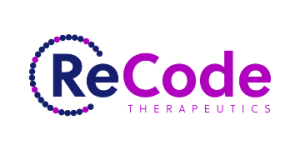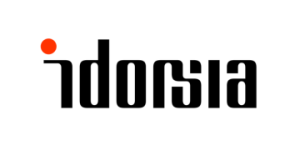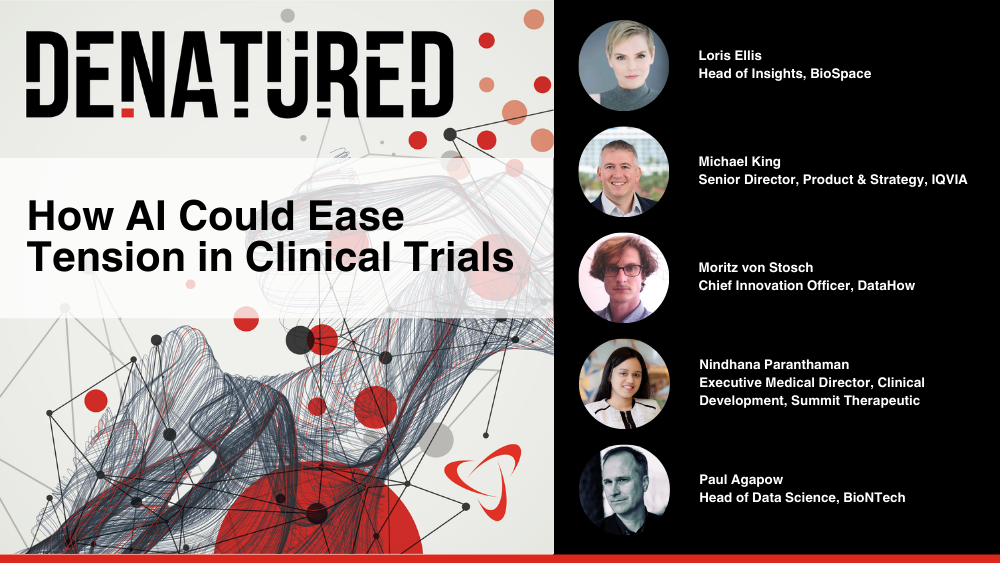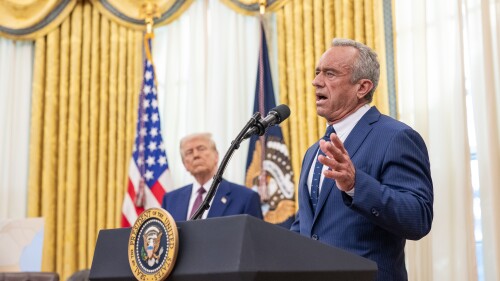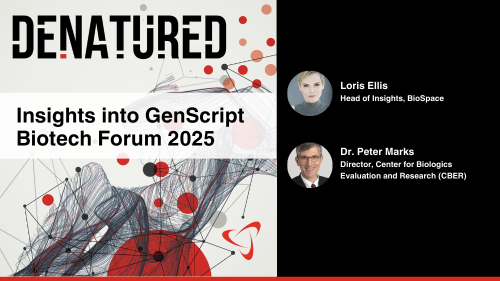CEO David Ricks wants Eli Lilly’s upcoming obesity pill to be accessible to patients who need it, but the company still needs to pay for the next generation of obesity medicines to come after that.
While the company’s sales outlook was otherwise rosy, Merck took sales hits on Gardisil, Proquad, Varivax and Vaxneuvance.
Bristol Myers Squibb beat analyst and consensus estimates for the third quarter with $12.2 billion in sales, but executives on the company’s investor call faced questions about a sluggish uptake for schizophrenia drug Cobenfy as well as a highly anticipated Alzheimer’s psychosis readout for the product.
To expand the population for the anti-amyloid Alzheimer’s drugs, Lilly and Biogen are testing presymptomatic patients. Will doctors be open to this paradigm-shifting change?
In this episode presented by Element Materials Technology, BioSpace’s head of insights discusses how China, historically focused on manufacturing, is increasingly becoming an innovation leader, particularly in pharmaceuticals, with guests Dr. Jihye Jang-Lee and Dr. Khanh Courtney. Ultimately, balanced strategies involve domestic capacity investments coupled with global collaboration.
Mounjaro and Zepbound contributed more than $10 billion to the $11.98 billion in sales Lilly recorded for key products in the third quarter, despite price decreases for the GLP-1 medicines.
FEATURED STORIES
Analysts reacted positively to the news that uniQure is in alignment with the FDA on an accelerated approval pathway and on target for a Q1 2026 submission for its one-time gene therapy for Huntington’s disease—but patients have been here before.
J&J has a multi-year head start, but Gilead believes it can win market share by delivering a drug with better safety and at least as good efficacy.
Jefferies has predicted more small tuck-in deals to come, as biotechs struggle to access capital despite key clinical milestones on the horizon.
A new report from Pitchbook suggests we’re in for a period of more sustainable investing, with VC firms continuing to create and invest in companies, just more carefully.
The overturning of the FDA’s lab-developed tests rule is just the tip of the iceberg. With the loss of Chevron deference, power has shifted from federal agencies to the courts, with potential implications for everything from the FDA shortage list to CMS drug price negotiations.
Arguably the most notable of the FDA’s upcoming decisions is that regarding Gilead’s twice-yearly HIV prophylaxis lenacapavir.
LATEST PODCASTS
Yet another therapy with FDA accelerated approval suffers a setback; Sage’s tough year continues; Sanofi drops $326 million in radiopharma while selling its consumer health unit; Novo Nordisk’s positive Rybelsus results in cardiovascular disease; and more.
J&J beat expectations this week to launch the Q3 earnings season; a study about children treated with bluebird bio’s Skysona comes at a bad time for the company; Sen. Warren calls for scrutiny of Novo’s purchase of Catalent; and other news.
In the third episode of our mini series on artificial intelligence, Lori and guests continue their exploratory discussion on AI and the opportunity in patient lives.
Job Trends
Sarepta Therapeutics Announces Inducement Grants Under Nasdaq Listing Rule 5635(c)(4) - May 31, 2024
Sarepta Therapeutics, Inc., the leader in precision genetic medicine for rare diseases, granted equity awards on May 31, 2024 that were previously approved by the Compensation Committee of its Board of Directors under Sarepta’s 2024 Employment Commencement Incentive Plan, as a material inducement to employment to 9 individuals hired by Sarepta in May 2024.
Subscribe to GenePool
Subscribe to BioSpace’s flagship publication including top headlines, special editions and life sciences’ most important breaking news
SPECIAL EDITIONS
In this deep dive, BioSpace investigates China’s rise as a biotech powerhouse.
In this deep dive, BioSpace explores the next big thing in obesity.
BioSpace did a deep dive into biopharma female executives who navigated difficult markets to lead their companies to high-value exits.
DEALS
-
China is adapting its Life Sciences policy to bolster innovation and data transparency. Big Pharma is taking note.
-
The acquisition from Wuxi Biologics, the embattled CDMO named in the BIOSECURE Act, marks another expansion of Merck’s manufacturing operations in Ireland.
-
M&A didn’t return as hoped for in 2024. The biopharma industry is heading into the J.P. Morgan Healthcare Conference next week in a grim mood.
-
Roche has once again returned to China to bolster its antibody-drug conjugate pipeline, this time striking a licensing deal with Innovent for $1 billion in biobucks.
-
High profile failures and long timeframes for revenue have shifted investment away from Phase I, as VCs seek to mitigate risk, Pitchbook said in its 2025 outlook.
WEIGHT LOSS
-
AbbVie is joining the amylin arena, though the pharma is still far behind leaders Novo Nordisk and Eli Lilly.
-
Two recent documents—one from the FDA, the other from a commission organized by The Lancet Diabetes & Endocrinology—indicate an evolving mindset toward treating obesity as a chronic disease.
-
While Kallyope’s drugs are mechanistically unique, the biotech is competing in a crowded space, with other therapies that appear to elicit superior weight-loss.
-
As high prices and supply issues drive consumers to alternative markets for GLP-1s, physicians aren’t too interested in using these therapies to treat conditions like heart disease risk that have existing cheap standards of care.
-
The Outsourcing Facilities Association, a trade group representing compounders, filed a similar lawsuit in October last year after the FDA formally ended the tirzepaptide shortage.
POLICY
-
According to President Trump, CMS Administrator Mehmet Oz is a “tough hombre” who can bring down drug costs “like a rock.”
-
Vocal skeptics of COVID-19 vaccinations gave mRNA a bad name and government funding for mRNA research is now being cut. On the flip side, at least one CEO said the pandemic also provided “elevated acceleration” for the field, which also holds promise in therapeutics for cancer and rare diseases.
-
The report takes from HHS Secretary Robert F. Kennedy Jr’s playbook, calling out rising autism rates, the vaccine schedule and over medication of children as reasons for chronic diseases.
-
In an opinion issued late Thursday night, U.S. District Judge Susan Illston wrote that the president and department agency heads do not have the authority to reorganize the government without Congress’ input.
-
The “One Big Beautiful Bill Act” includes negotiation exemptions for orphan drugs approved to treat more than one rare disease and has implications for PBMs. Also on Thursday, the White House released its MAHA report with a mission to “make our children healthy again.”
The search for a biopharma job can be daunting, but it doesn’t have to be. Here is a complete guide to the biopharma job hunt, from researching job openings to writing resumes and cover letters.
Even if you aren’t looking for a new role in biopharma, nurturing relationships will only benefit you in the long run. To help, here is a complete guide to networking in the life science industry.
To help alleviate some of the stress related to finding a new job, we’ve created a comprehensive guide detailing how to prepare for your biopharma job search.
Requesting disability accommodations is vital for your success in the workplace. You can find out everything about how to ask for accommodations in our guide.
Before searching for a job in the life sciences industry, it is essential to understand the differences between working as a contractor and a full-time employee.
Mentioning these certifications in your resume will set you apart from other candidates, clearing your path to your desired role. Learn here how to add certification to resume.
HOTBEDS
REPORTS
In this Employment Outlook report, BioSpace explores current workforce sentiment, job activity trends and the prospective job and hiring outlook for 2025, particularly as it compares to the previous year.
BioSpace’s third report on diversity, equity, inclusion and belonging in life sciences examines dramatic shifts in attitude around diversity initiatives.
CANCER
-
The latest data from Johnson and Johnson’s Rybrevant and Lazcluze lung cancer combo was better than standard of care Tagrisso on overall survival. But analysts say the next step is getting a subcutaneous formula approved.
-
The German conglomerate announced a licensing agreement with Puhe BioPharma for a PRMT5 inhibitor used in a variety of cancers. Financial details of the deal were not disclosed.
-
AbbVie claims that Genmab turned a blind eye to trade secret theft allegedly used to support the development of ProfoundBio’s investigational antibody-drug conjugates. Genmab acquired ProfoundBio in May 2024.
-
Adaptimmune is rolling out its T cell therapy Tecelra for synovial sarcoma, recording $1.2 million in sales since its approval in August 2024. Nevertheless, it is pausing development of two oncology assets to save money.
-
With Keytruda, the best-selling drug in the world, facing the end of exclusivity in 2028, BioSpace looks at five drugs that have taken the leap off the patent cliff.
NEUROSCIENCE
-
After SPN-820’s failure, Supernus is relying on its non-stimulant ADHD drug Qelbree and the recently approved Parkinson’s therapy Onapgo to sustain the company.
-
The partnership splits the rights to Stoke’s epilepsy antisense oligonucleotide, with up to $385 million in potential payments due to Stoke.
-
Helmed by Roche alums, Newleos Therapeutics is taking over four drugs dropped from the Swiss pharma’s pipeline in early 2024.
-
Biogen and Eisai have spent much of Leqembi’s launch convincing physicians and patients that it’s safe to treat Alzheimer’s disease. With patients now hitting the 18-month mark of treatment, the conversation is finally shifting to efficacy.
-
The approval comes days after Germany’s Merck KGaA confirmed it was in advanced talks to acquire SpringWorks.
CELL AND GENE THERAPY
-
As the year gets underway, analysts and biotech executives highlight cell therapy’s pivot from oncology to autoimmune diseases, a continued appetite for next-generation obesity drugs and an increased focus on neuromuscular, kidney and cardiovascular diseases.
-
Traditionally carrying a dire prognosis, the treatment paradigm for multiple myeloma is changing, with CAR T therapies, bispecifics and more contributing to multifaceted regimens unique to each patient’s needs.
-
In this episode of Denatured, BioSpace’s Head of Insights Lori Ellis talks to Dr. Peter Marks, Director, CBER about his thoughts on the future of cell and gene therapies.
-
Along with its gene editing therapy Casgevy, Vertex is offering fertility preservation support for its patients—a program that the HHS claims violates anti-kickback statutes.
-
Biopharma executives were busy Monday, striking high-value deals and providing updates on cancer, obesity and vaccine pipelines.


















